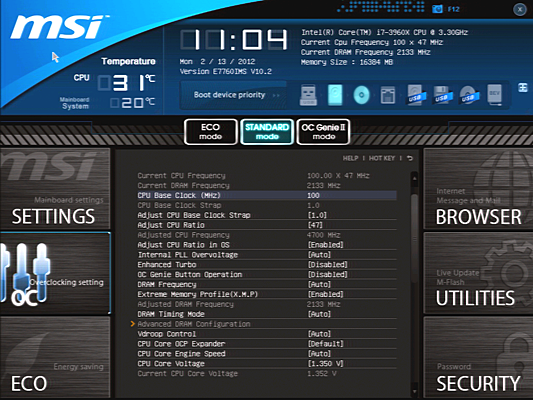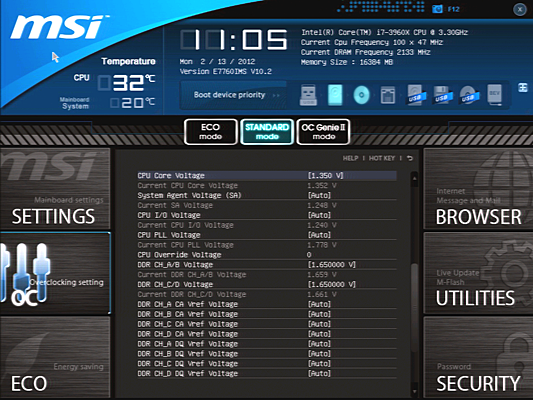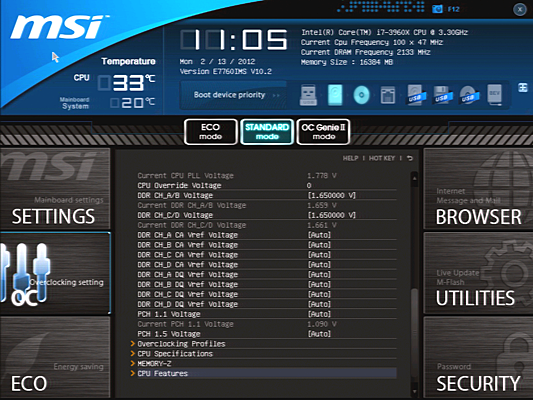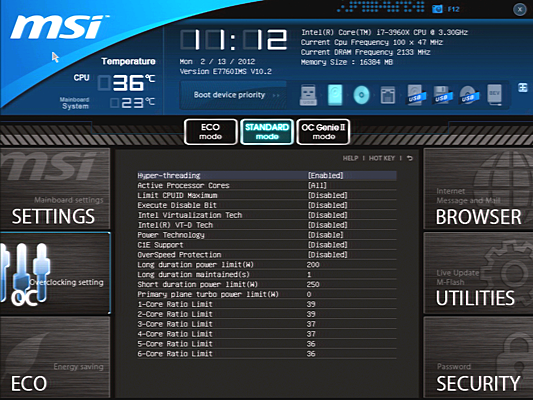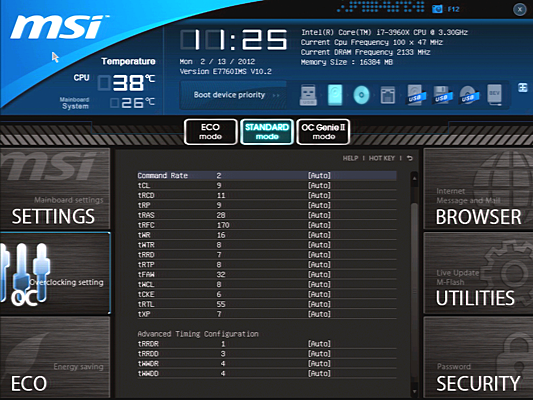Six $200-$260 LGA 2011 Motherboards, Reviewed
We know that Intel's X79 Express platform hosts the fastest desktop processors in the company's portfolio. But can it be made more affordable? We round up the least-expensive $200-$260 motherboards to determine how much you have to give up for cheap X79.
X79A-GD45 (8D) Firmware
Overclockers generally know what settings they want to change. Meanwhile, MSI sets its firmware's fonts really large for the most trivial settings and really small for the most important settings. Could that reverse emphasis be designed to discourage more casual users from playing with the wrong option?
All primary clock and voltage controls are found within the main OC menu, including base clock, chipset ratio (Clock Strap), CPU multiplier, and DRAM ratio.
CPU Core, CSA, VTT, and PLL voltages are all adjustable.
If you choose not to manually specify CPU voltage but still want a little more performance using Intel’s stock voltage scheme, use the separate Override Voltage option. DIMM voltage is adjustable in channel pairs, while DIMM reference voltage is further divided into single-channel settings.
While Turbo Boost ratios are adjustable based on the number of active cores within the CPU features menu, our target was to simply find one stability limit with all cores loaded. Hitting that target was as simple as setting the base ratio to 47x in the main menu, pushing our CPU to 4.70 GHz.
Primary and secondary memory timings are adjustable from the Advanced DRAM Configuration submenu. Shown timings correspond to XMP values for our test modules.
Get Tom's Hardware's best news and in-depth reviews, straight to your inbox.
Current page: X79A-GD45 (8D) Firmware
Prev Page MSI X79A-GD45 (8D) Next Page Test Settings And Benchmarks-
I like Asrock boards. I have an 880GM-LE mATX and a Z68 Pro3 Gen3 ATX and both are good performance and price-performance wise.Reply
-
hellfire24 Asrock is dominating both high end and mid range market.extreme3/gen3 1155 is awesome and cheapest pci-e 3.0 sli capable mobo.Asrock FTW!!!Reply -
Achoo22 ReplyQuite simply, the costs associated with Sandy Bridge-E are higher, in part because of Intel's prices and also because the boards are more difficult to design.
Since the boards all have vastly superior profit margins, your statement is misleading. Why is everyone too afraid to reveal the truth about motherboard pricing? -
AlexIsAlex Would it be possible, in future motherboard reviews, to include a measure of the cold boot (POST) time? This is something that different bioses can be differentiated on, and UFEI offers the potential for very fast boots if manufacturers take advantage of it properly.Reply
A comparison of the time between the power button being pressed and the installed bootloader starting would be very interesting to me. I was thinking it might be easiest to measure this by having no OS on the boot media and measuring the time to the "please insert boot media" message, but I'm sure you can think of other ways of doing it.
I'm also informed that on some boards the boot time varies dramatically dependent on whether any Overclocking is enabled, as compared to the stock settings - that would also be worth knowing. -
americanbrian your feature table says the asrock extreme 4 comes with an 8 phase voltage regulator, but the text of article says 10 phase...which is it ?Reply -
KT_WASP crisan_tiberiuASRock = ASUSReply
not anymore, asrock is no longer affiliated with Asus and is owned by Pegatron Corp. -
memadmax I wish tom's would do a "best motherboards for the money" or something close to that.Reply
